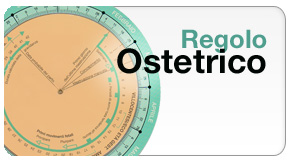
Sindrome MASA o Sindrome CRASH OMIM 303350
Sindrome MASA o Sindrome CRASH OMIM 303350
La sindrome MASA, detta anche sindrome CRASH, è una malattia genetica dovuta a mutazioni del gene L1CAM che codifica per una proteina espressa prevalentemente nel sistema nervoso dove è coinvolta sia nell'adesione tra cellule, sia nel sostentamento delle cellule nervose stesse.
La malattia è trasmessa con carattere recessivo legato al cromosoma X: solo i maschi sono ammalati, mentre le femmine sono portatrici sane. Altre mutazioni nello stesso gene danno origine ad altre patologie legate all'X, come l'idrocefalo con stenosi dell'acquedotto di Silvio (HSAS), la paraplegia spastica ereditaria di tipo 1 e l'agenesia del corpo calloso complicata legata all'X; tutte rappresentano manifestazioni cliniche di mutazioni nello stesso locus Xq28.
Ecograficamente si caratterizza per la presenza di ipoplasia del corpo calloso, anomalie di struttura dei pollici (pollici addotti), idrocefalia lieve o moderata.
Clinicamente i soggetti affetti presentano ritardo mentale, paraplegia spastica, afasia.
La diagnosi ecografica prenatale è molto difficile; per le donne a rischio (appartenenti
a famiglie in cui sia stata individuata la mutazione responsabile della
sindrome) è disponibile la diagnosi prenatale con ricerca di mutazioni nel gene
L1CAM.
Bibliografia
Bianchine, J. W., Lewis, R. C., Jr. The MASA syndrome: a new
heritable mental retardation syndrome. Clin. Genet. 5: 298-306, 1974.
Dahme, M., Bartsch, U., Martini, R., Anliker, B., Schachner,
M., Mantei, N. Disruption of the mouse L1 gene leads to malformations of the
nervous system in mice. Nature Genet. 17: 346-349, 1997.
Edwards, J. H. The syndrome of sex-linked hydrocephalus.
Arch. Dis. Child. 36: 486-493, 1961.
Fink, J. K. Advances in hereditary spastic paraplegia. Curr.
Opin. Neurol. 10: 313-318, 1997.
Fink, J. K., Heiman-Patterson, T., Bird, T., Cambi, F.,
Dube, M.-P., Figlewicz, D. A., Haines, J. L., Hentati, A., Pericak-Vance, M.
A., Raskind, W., Rouleau, G. A., Siddique, T. Hereditary spastic paraplegia:
advances in genetic research. Neurology 46: 1507-1514, 1996.
Fransen, E., Lemmon, V., Van Camp, G., Vits, L., Coucke, P.,
Willems, P. J. CRASH syndrome: clinical spectrum of corpus callosum hypoplasia,
retardation, adducted thumbs, spastic paraparesis and hydrocephalus due to
mutations in one single gene, L1. Europ. J. Hum. Genet. 3: 273-284, 1995. Note:
Erratum: Europ. J. Hum. Genet. 4: 126 only, 1996.
Fryns, J. P., Schrander-Stumpel, C., de Die-Smulders, C.,
Borghgraef, M., van den Berghe, H. MASA syndrome: delineation of the clinical
spectrum at prepubertal age. Am. J. Med. Genet. 43: 402-407, 1992.
Fryns, J. P., Spaepen, A., Cassiman, J. J., Van den Berghe,
H. X linked complicated spastic paraplegia, MASA syndrome, and X linked
hydrocephalus owing to congenital stenosis of the aqueduct of Sylvius: variable
expression of the same mutation at Xq28. (Letter) J. Med. Genet. 28: 429-431,
1991.
Gareis, F. J., Mason, J. D. X-linked mental retardation
associated with bilateral clasp thumb anomaly. Am. J. Med. Genet. 17: 333-338,
1984.
Jouet, M., Rosenthal, A., Armstrong, G., MacFarlane, J.,
Stevenson, R., Paterson, J., Metzenberg, A., Ionasescu, V., Temple, K.,
Kenwrick, S. X-linked spastic paraplegia (SPG1), MASA syndrome and X-linked
hydrocephalus result from mutations in the L1 gene. Nature Genet. 7: 402-407,
1994.
Kaepernick, L., Legius, E., Higgins, J., Kapur, S. Clinical
aspects of the MASA syndrome in a large family, including expressing females.
Clin. Genet. 45: 181-185, 1994.
Kenwrick, S., Ionasescu, G., Searby, C., King, A., Dubowitz,
M., Davies, K. E. Linkage studies of X-linked recessive spastic paraplegia
using DNA probes. Hum. Genet. 73: 264-266, 1986.
Legius, E., Kaepernick, L., Higgins, J. V., Glover, T. W.
Fine mapping of X-linked clasped thumb and mental retardation (MASA syndrome)
in Xq28. Clin. Genet. 45: 165-168, 1994.
Macias, V. R., Day, D. W., King, T. E., Wilson, G. N.
Clasped-thumb mental retardation (MASA) syndrome: confirmation of linkage to
Xq28. Am. J. Med. Genet. 43: 408-414, 1992.
Rietschel, M., Friedl, W., Uhlhaas, S., Neugebauer, M.,
Heimann, D., Zerres, K. MASA syndrome: clinical variability and linkage
analysis. Am. J. Med. Genet. 41: 10-14, 1991.
Ruiz, J. C., Cuppens, H., Legius, E., Fryns, J.-P., Glover,
T., Marynen, P., Cassiman, J.-J. Mutations in the L1-CAM in two families with X
linked complicated spastic paraplegia, MASA syndrome, and HSAS. J. Med. Genet.
32: 549-552, 1995.
Schrander-Stumpel, C., Howeler, C., Jones, M., Sommer, A.,
Stevens, C., Tinschert, S., Israel, J., Fryns, J. P. Spectrum of X-linked
hydrocephalus (HSAS), MASA syndrome, and complicated spastic paraplegia (SPG1):
clinical review with six additional families. Am. J. Med. Genet. 57: 107-116,
1995.
Schrander-Stumpel, C., Legius, E., Fryns, J. P., Cassiman,
J. J. MASA syndrome: new clinical features and linkage analysis using DNA
probes. J. Med. Genet. 27: 688-692, 1990.
Straussberg, R., Blatt, I., Brand, N., Kessler, D.,
Katznelson, M. B.-M., Goodman, R. M. X-linked mental retardation with bilateral
clasped thumbs: report of another affected family. Clin. Genet. 40: 337-341,
1991.
Vits, L., Van Camp, G., Coucke, P., Fransen, E., De Boulle,
K., Reyniers, E., Korn, B., Poustka, A., Wilson, G., Schrander-Stumpel, C.,
Winter, R. M., Schwartz, C., Willems, P. J. MASA syndrome is due to mutations
in the neural cell adhesion gene L1CAM. Nature Genet. 7: 408-413, 1994.
Winter, R. M., Davies, K. E., Bell, M. V., Huson, S. M.,
Patterson, M. N. MASA syndrome: further clinical delineation and chromosomal
localisation. Hum. Genet. 82: 367-370, 1989.
Yeatman, G. W. Mental retardation--clasped thumb syndrome.
Am. J. Med. Genet. 17: 339-344, 1984.
Aggiornamenti
- Patologie Genetiche dello Scheletro
Sono elencate tutte le 436 Displasie Scheletriche con la... - Consigli per l'utilizzo del software diagnosi in Diagnosi...
Consigli per l'utilizzo del software diagnosi in Diagnosi... - TERMINI DI USO DEL PORTALE WEB med2000eco e Software...
TERMINI DI USO DEL PORTALE WEB med2000eco e Software...
